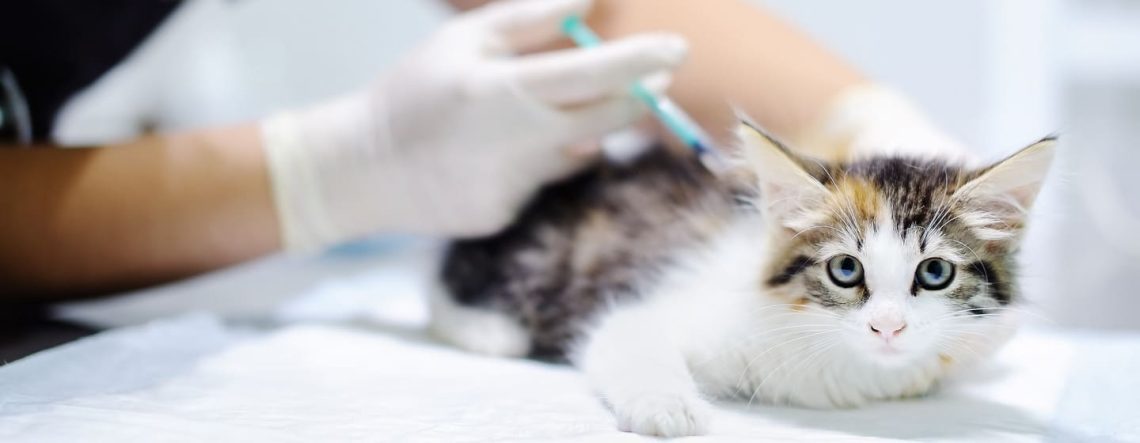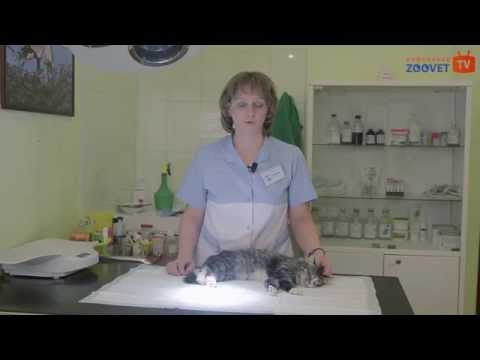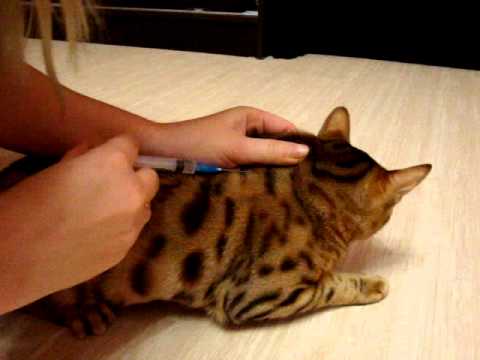
אַנטיביאַטיקס פֿאַר קאַץ: קלאַסאַפאַקיישאַן, ינדאַקיישאַנז, אַדווערס ריאַקשאַנז און רעקאַמאַנדיישאַנז
Infections in cats are not uncommon, so veterinarians are increasingly prescribing antibiotics to pets. Antibacterial drugs are the most important tool in the treatment of inflammatory diseases that local drugs cannot cope with. However, this “medal” has a second side – adverse reactions. Deciding on such treatment or fearing adverse reactions – more on that below.
ינהאַלט
וואָס זענען אַנטיביאַטיקס?
So, antibiotics are medicines that allow one way or another to kill a bacterium (bactericidal drugs) or prevent it from growing and multiplying (bacteriostatics).
קלאַססיפיקאַטיאָן
There are many drugs that are divided into groups depending on the chemical structure:
- פּעניסיללינס;
- סעפאַלאָספּאָרינס;
- טעטראַסיקלינעס;
- טשלאָראַמפעניקאָל;
- מאַקראָלידעס;
- אַמינאָגליקאָסידעס;
- glycopeptides;
- lincosamides, etc.
פארמען פון מעלדונג
Based on which organ is being treated, the doctor must select a specific form of antibiotic. They can be of general action (systemic) and local. If it is necessary to treat a wound on the skin of a cat, then ointments, sprays and powders are prescribed, and if the mucous membranes are affected, special ointments and drops are prescribed. Systemic antibiotics have the most pronounced effect., they are used in the form of tablets, intravenous and intramuscular injections. In addition, there are various candles and aerosols.


היטן דעם ווידעא אויף יאָוטובע
נוצן פון אַנטיביאַטיקס
Antimicrobials are used in the treatment of many diseases. They can be used in the following pathological conditions:
- abscesses after injuries (for example, bites);
- הויט ינפעקשאַנז;
- אויג ינפעקטיאָנס;
- pyometra;
- גיאַרדיאַסיס;
- טשלאַמידיאַ;
- in the postoperative period (including after sterilization).
Penicillins are used to treat burn fields in cats, purulent wounds, cuts. Systemically used for pleurisy, peritonitis, infections of the genitourinary system. Streptomycins have a similar use, moreover, they are often prescribed in combination with penicillins. Tetracycline ointments are widely used for conjunctival lesions and skin. Cephalosporins, like sulfonamides, are prescribed for infections of the gastrointestinal tract, respiratory, enteritis and pyometra. Gentamicin is effective for inflammation of the nasopharynx, eyes and gastrointestinal infections.
Symptoms of some bacterial infections
If the following signs are present in cats, it is necessary urgently contact the veterinarian, since if left untreated, the disease can become complicated or become chronic. The most common diseases are tonsillitis, bronchitis and cystitis.
Symptoms of angina:
- sharp reddening of the pharynx;
- פאַרגרעסערן אין טעמפּעראַטור;
- lethargy, loss of appetite;
- possible runny nose.


היטן דעם ווידעא אויף יאָוטובע
If you do not start treatment of angina in time, you can get complications, for example, bronchitis.
Bronchitis symptoms:
- ומבאַקוועמקייַט
- טשילז, היץ;
- noisy, heavy breathing;
- apathy, lack of appetite.
Unfortunately, cystitis is very common today. it the disease is painful for the cat and requires quite a long and pedantic treatment.
Symptoms of cystitis:
- frequent urination, small portions of urine;
- urinary retention up to a day;
- in the process of urination, the cat emits an agonizing meow;
- apathy, constant thirst;
- טעמפּעראַטור.
These symptoms of cystitis may disappear in a week, however, this is not an indicator that the disease has passed. It can become chronic.
There are also pathologies caused by bacteria, which are less common, however, are more dangerous and need urgent help veterinarians. These are abscesses, postoperative infections (including after sterilization) and pyometra.
An abscess is detected by careful examination, palpation and history taking. Treatment is prescribed depending on the stage of development of the process. If an abscess has already formed, it needs to be opened immediately. and release the pus. The antibiotic in this case is used as an irrigation of the opened cavity in order to prevent re-infection. In severe cases, systemic drugs may be prescribed.
Antibiotics for cats in the postoperative period are required. They are necessary to prevent the development of infection cavities. Sterilization also needs such therapy, although it is not a serious abdominal operation. Unfortunately, antibiotics after sterilization are not prescribed by all veterinarians. The fact is that many cats are resistant to the development of peritonitis, this is due to their anatomy. Many, but not all. Therefore, there is a possibility of this complication. For the prevention of peritonitis, broad-spectrum antibiotics are used, most often cephalosporins and fluoroquinolones.
Unfortunately, there is such a disease as pyometra. This is a collection of pus in the uterine cavity. If the veterinarian is experienced, a thorough examination, palpation and diagnosis by ultrasound or x-ray is enough for him. Additional tests will only clarify which antibiotics are appropriate in a particular case. Pyometra is most often treated surgically, however, it is possible to prescribe conservative therapy (hormones, antibiotics, droppers).


היטן דעם ווידעא אויף יאָוטובע
Features of treatment and side effects
Unfortunately, antibiotics for cats are far from safe. They should be prescribed only by a veterinarian and after a complete examination. The fact is that many antibiotics are excreted through the kidneys and if the cat had some kind of hidden disease of the urinary system, it will worsen. In addition, antibacterial drugs disrupt the intestinal microflora, therefore, should be prescribed with drugs that contribute to its restoration.
It is very important that the dosage of the antibiotic is chosen correctly. If not enough, the symptoms will go away, but the infection will remain. Moreover, bacteria are able to quickly adapt to a certain type of antibacterial drugs. Therefore, the doctor must know all the drugs that have ever been prescribed to a cat in order to select a remedy from another group or a combination of antibiotics.
You should also always be aware of the possible development of allergic reactions to a particular drug. The first injection should always take place in the presence of a veterinarian. He, if necessary, will be able to provide first aid for anaphylactic shock. In less severe cases of allergy, the manifestations are also not pleasant: itching, swelling, baldness. In these cases, the veterinarian replaces the drug or cancels it altogether.
There are negative reactions that are caused by a certain drug. Contraindications for such drugs are specific and prescribed in the instructions. Common side effects are also possible: nausea and vomiting. In this case, it is advisable to change either the drug, or its dosage and route of administration.
As a rule, antimicrobials are well absorbed by cats, but medicines for humans are not always suitable for them. In addition, it must be remembered that antibiotics adversely affect offspring, therefore, it is not recommended to mate cats within three months after antibiotic therapy.
In order for a cat to be treated successfully, it is necessary strictly follow the recommendations of the veterinariana, make sure that he clearly explained and prescribed the form of the antibiotic, its dose and frequency of administration. In no case should you self-medicate.


היטן דעם ווידעא אויף יאָוטובע
To accept or not to accept?
Of course, the answer is unequivocal – to accept. But only when necessary and only those prescribed by the veterinarian. There are many diseases and self-medication is life-threatening pet. So, for example, the symptoms of many viral diseases are very similar to the symptoms of bacterial invasions, however, they are treated differently. In addition, there is always the possibility of developing anaphylactic shock, which is not possible to cope with at home.
Wrong dosage, incorrectly selected drug will not cure the animal, but cripple it. If there is any doubt about the qualifications of the veterinarian who prescribed the treatment, it is worth going to another specialist. You need to make sure that the therapy is planned clearly and clearly.
Treatment in most cases is carried out at home. If the animal is calm, then you can even do injections yourself. Now the pharmaceutical industry in veterinary medicine is actively developing, therefore more and more convenient forms of antibiotics are emerging for cats, for example, tablets with a certain taste. It is necessary to meticulously follow the recommendations for time, dosage and frequency of administration.
Another point in successful treatment is the quality of the medicine. The drug for a pet should be checked no less carefully than for yourself. You need to buy antibiotics for cats in specialized pharmacies that have a license. And be sure to before the introduction of the drug you need to make sure that the expiration date has not yet passed.
Only if all these points are observed, we can talk about successful treatment that will be safe for the pet.








